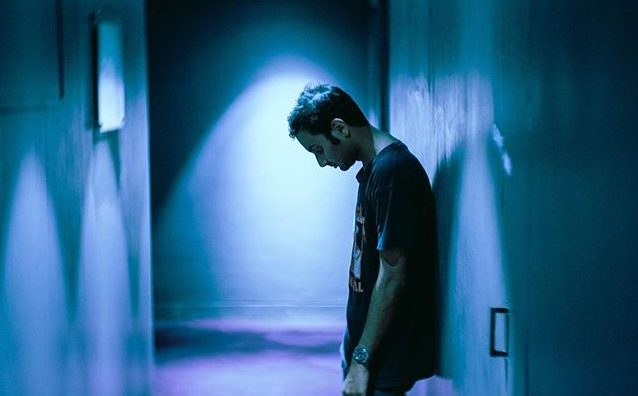Photo credit: @marcusrussellprice on Instagram
For years I’ve enjoyed the stand-up work of Aziz Ansari. Far beyond his goofy character on Parks and Recreation, and his occasionally self-indulgent emoting in Master of None, I’ve found his stand-up comedy to be insightful about our culture in a way that few other stand-ups have managed to be.
So I was fairly disappointed with his reaction when, early last year, he was accused of sexual misconduct by a woman with whom he’d been on a date. It was a rather polarizing incident, with many people, including many women, coming to his defense.
I was actually initially skeptical of the claims in the original article that Ansari’s behavior rose to the level of “sexual assault.” But after reading a couple of further perspectives on the issue, I came to believe that the issue was far more complicated than I’d realized, and became convinced that the article at least deserved to be in the conversation.
I even wrote an open letter to Ansari, describing the lessons I thought he should learn from the episode, and lamented that it seemed he had not done so.
Fast forward to a few days ago, when a friend suggested we watch his latest stand-up special, Right Now, on Netflix. I hadn’t been keeping up with the story of his comeback, and I hesitated to watch, since there was still a bad taste in my mouth from an issue I felt was unresolved. But, if my companion was going to watch anyway, and I wouldn’t be giving Ansari any extra views, well, okay.
I’m glad I did, because I saw something remarkable. Ansari addressed the issue fairly and straightaway in his special.
“You know, I haven’t said much about that whole thing, but I’ve talked about it on this tour. Because you’re here and that means a lot to me, and I’m sure there are some of you that are curious how I feel about that whole situation.
“And it’s a tricky thing for me to answer, cause I felt so many things in the last year or so. There’s times I felt scared, there’s times I felt humiliated, there’s times I felt embarrassed, and ultimately I just felt terrible that this person felt this way, and after a year or so I just hope that it was a step forward. It moved things forward for me, made me think about it a lot. I hope I’ve become a better person.
“And I always think about a conversation that I had with one of my friends where he was like, ‘You know what, man, that whole thing made me think about every date I’ve ever been on.’ And I thought, wow, now that’s pretty incredible. This made not just me, but other people, be more thoughtful, and that’s a good thing.
“And that’s how I feel about it. And I know this isn’t the most hilarious way to begin a comedy show. But it’s important to me that you know how I feel about that whole thing before we share this whole night together.”
The audience reaction was pretty positive, and it softened me as well. It didn’t quite seem to be a full apology, and perhaps Ansari could and should be a bit more specific, especially in other forums, about what he regrets and how he can become a better version of himself. But I felt like Ansari dealt with his past carelessness in a way that finally seemed heartfelt. And he recognizes, as I had hoped, that he needed to do some growing up, and that so did a lot of people, myself included.
The fact is, we’ll continue to have plenty of growing to do. In a previous column I mentioned that, “We may think the Dalai Lama has it pretty much figured out in the empathy department, but since our window keeps moving we really have no idea. He may be a selfish narcissist compared to the enlightened generations that follow him and us in the future.” And I’m more serious about this idea than one might expect. (The Dalai Lama has since come under criticism for asserting that if the next Lama were female, “she should be more attractive.”)
I can certainly understand the antipathy that many people have toward moral relativism, since if we don’t rely on a stable set of values, how can any of us know what is the right ethical framework to use for our decisions? But it’s undeniable that those frameworks have changed over time as we become more aware of the perspectives of others, and how they’re affected by our own choices.
Ansari talked in his act about how quickly things have changed in just the past few years.
“You ever watch very popular mainstream stuff from not that long ago?” he asked. “You can watch stuff that’s not that old with 2019 eyes and things can seem weird now.” He cited some interesting examples from hugely successful works that we all know and love, like The Hangover, The Office and his own Parks and Rec. (In the latter example his own character, Tom Haverford, creepily gifts Ann Perkins a teddy bear with an embedded camera so he can watch the inside of her apartment, which the show handled as much more innocent than it was.)
“But that’s very interesting, what does that mean?” he continued. “Does that mean me and the people that made Parks are bad people? No. It’s a different cultural context. You can’t judge everything by 2019 standards.”
And in the future, 2019 standards will also seem woefully inadequate.
But as we’re making progress with ourselves, we should also extend a “generosity of spirit,” as Bill Doherty would put it, towards those who don’t have the same ethical framework as us, who haven’t “evolved” the way we insist is necessary. As we’re asking others to exercise their empathy, to perhaps finally address the harm their behavior or inaction has caused, we can offer the same empathy to them, and realize that we cannot fully know what’s in their hearts.
This doesn’t mean we should stop fighting for justice for all oppressed groups. But it does mean that when we see someone whose behavior, especially previously, has hurtful consequences, we can approach them in a way that starts with the most generous reading of their actions, along with recognizing their inherent goodness and desire for the best for all people, and their intention to become better. And it hopefully means that we’ll be less eager to cast someone out of the conversation for their past misdeeds.
I’ve written previously about my role as a wedding officiant. In the ceremonies I perform, I often talk about the importance of “arguing well,” and sticking with the conversation around a disagreement until you’re able to come out together on the other side, keeping the faith that your partner is still the same person whose values and thought process you fundamentally respect. By maintaining an open line of communication, rather than throwing up your hands in exasperation, more often than not that faith will be rewarded with a deeper understanding of one another, and a deeper connection than when you started.
I’m glad I watched Ansari’s new special. And I’m glad that my friend had the good sense to help me let go of my resentment, and allow him back into my own personal conversation about a difficult topic. She helped me take that leap of faith, and it was rewarded.




